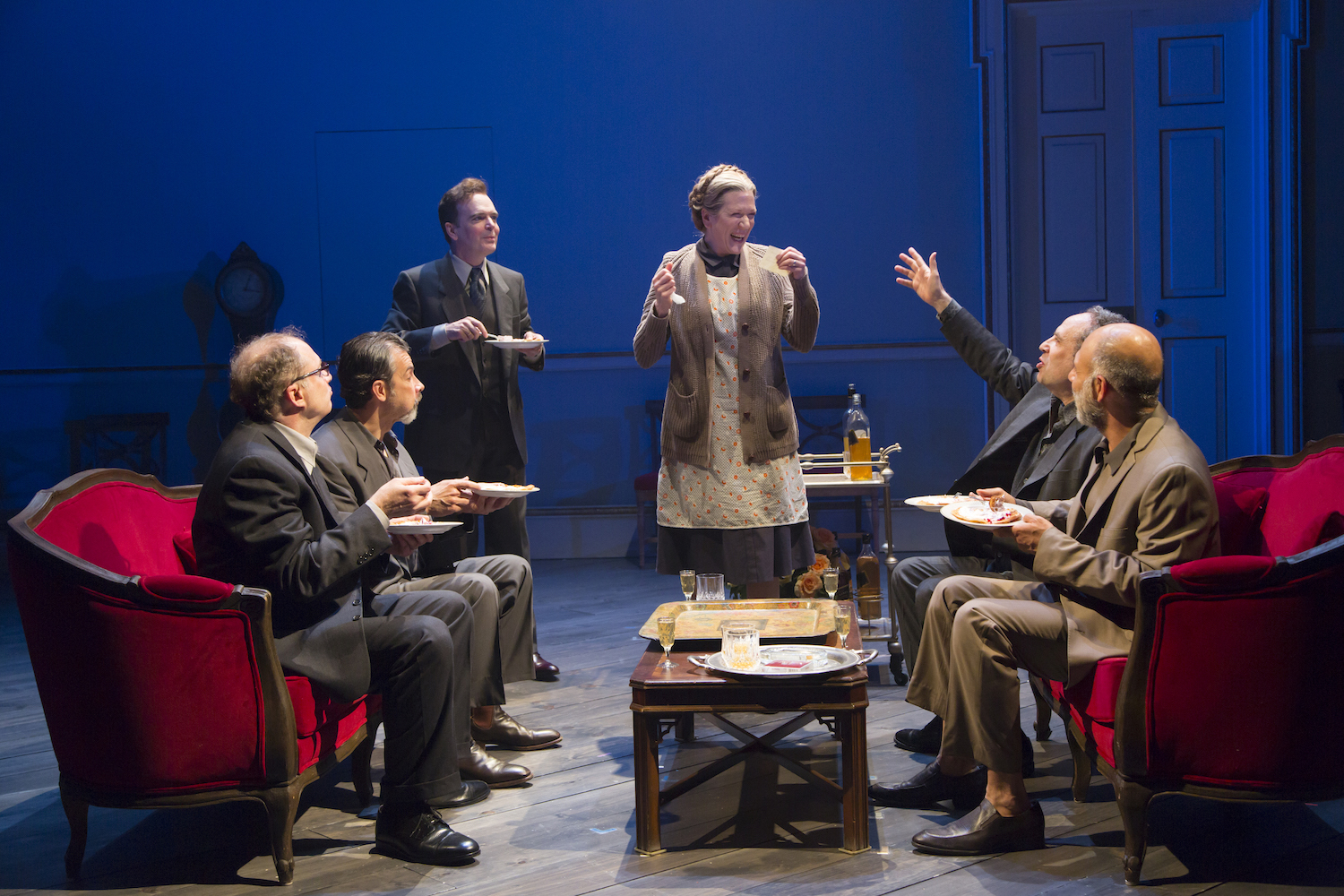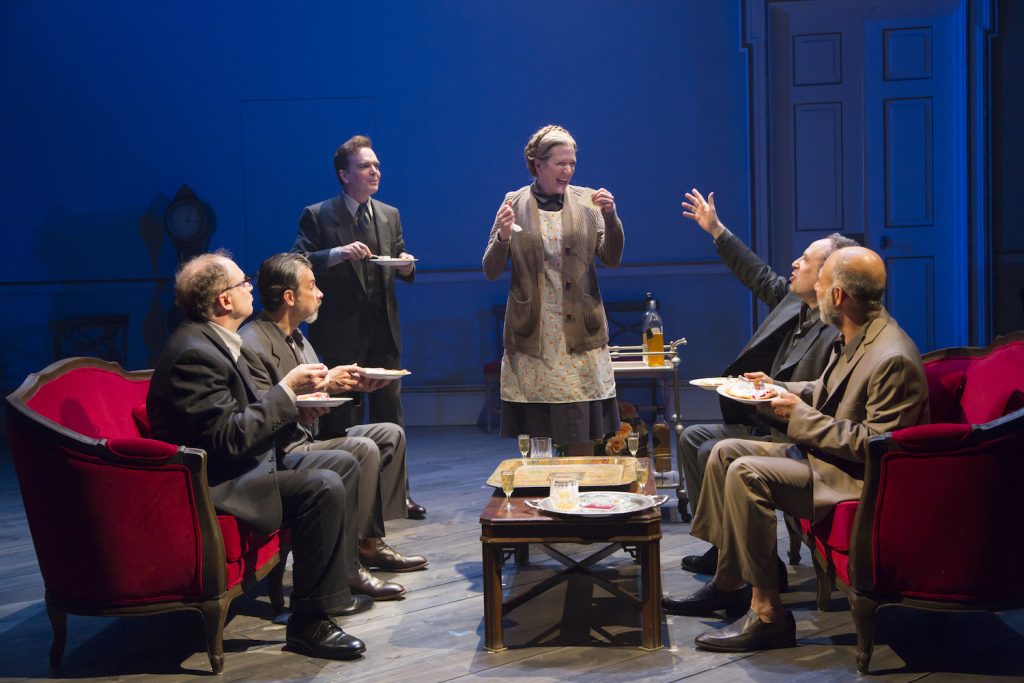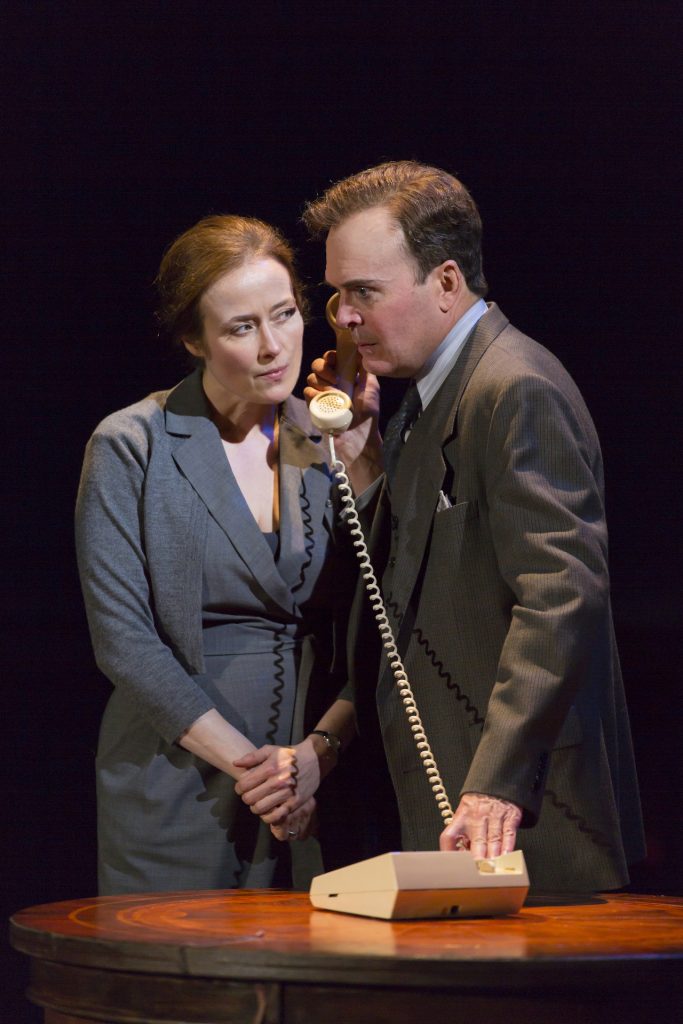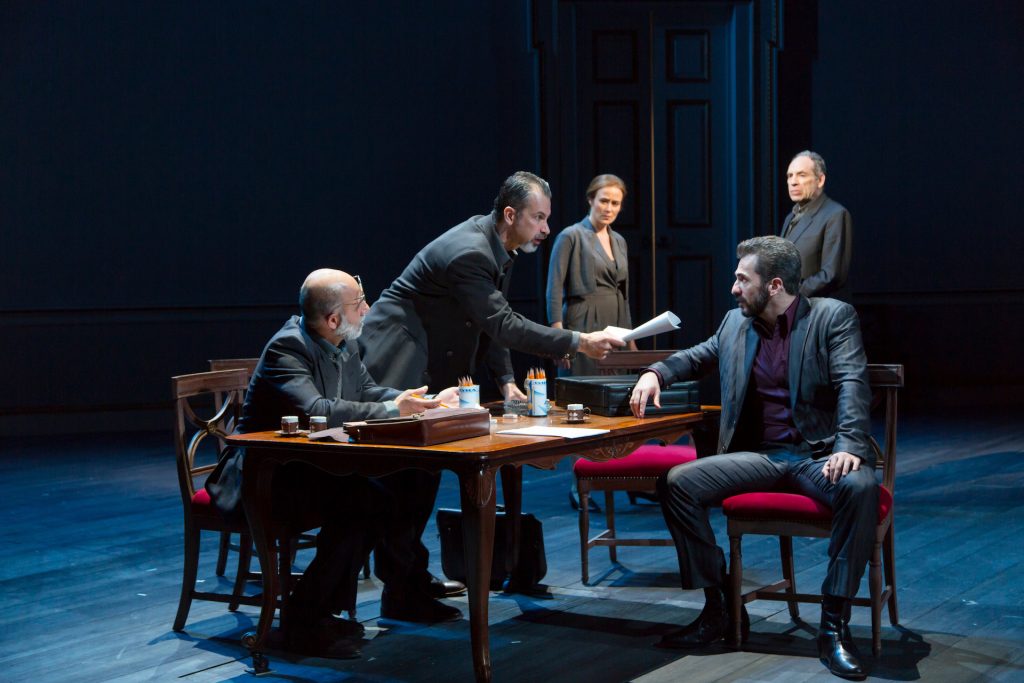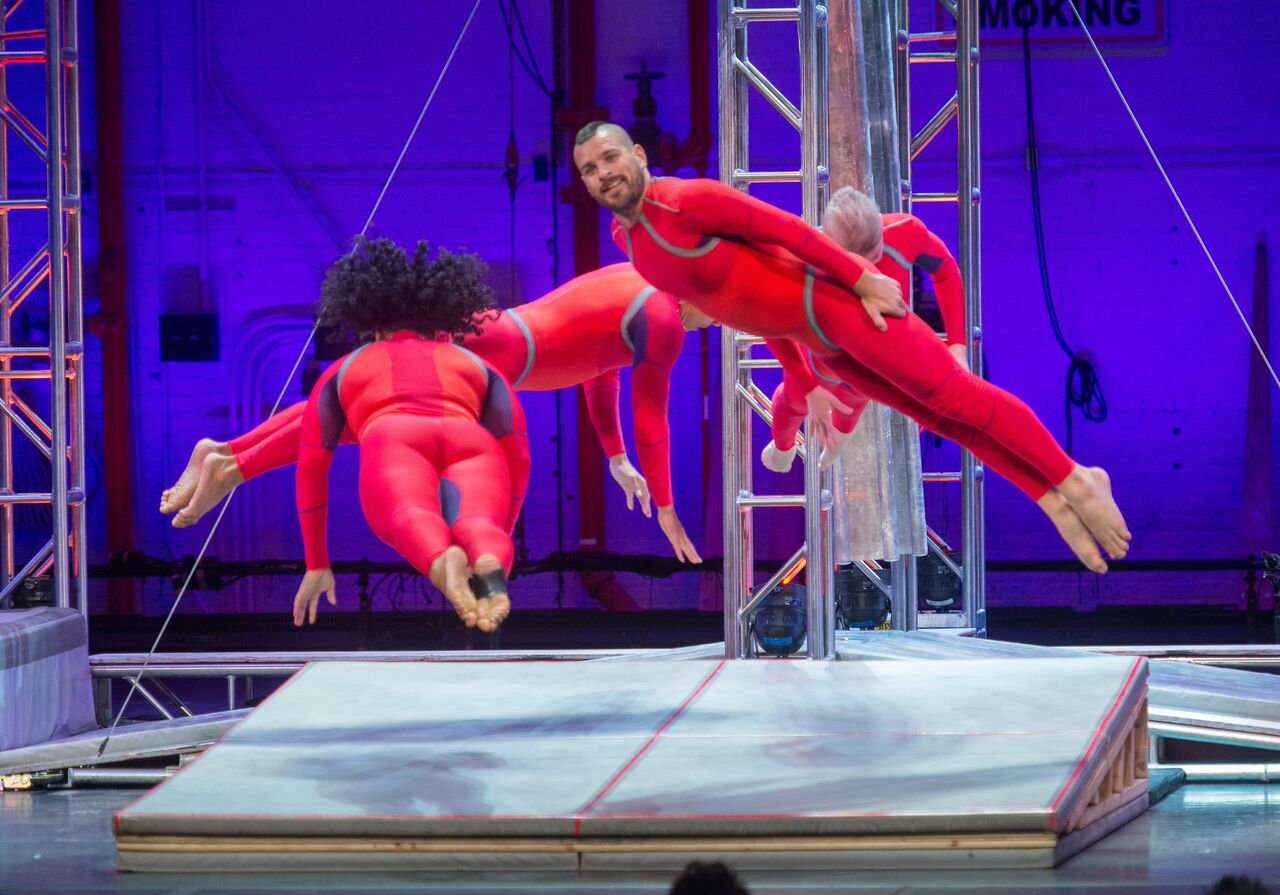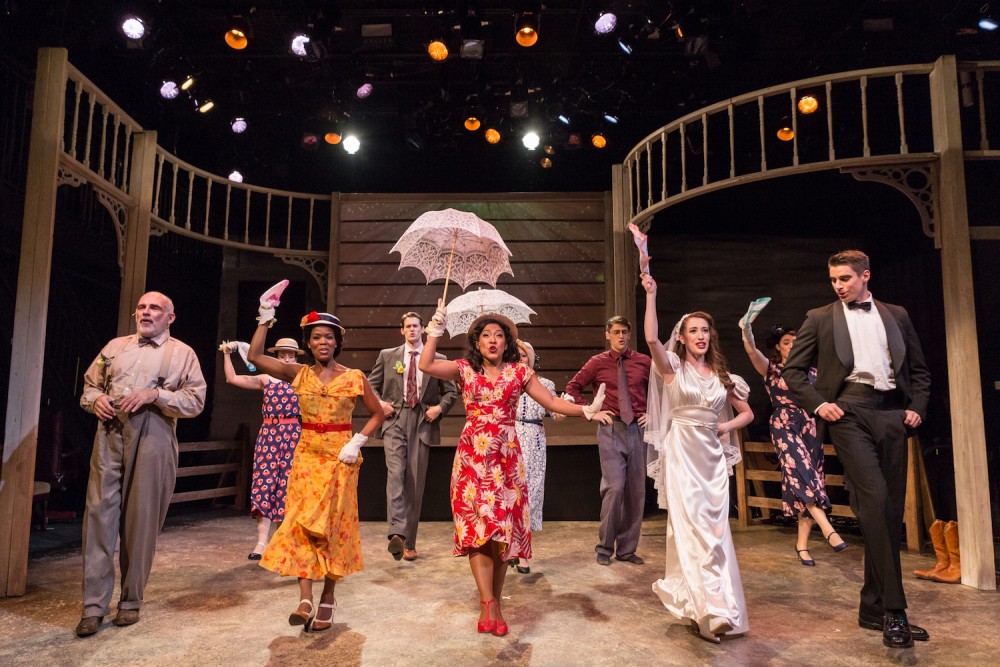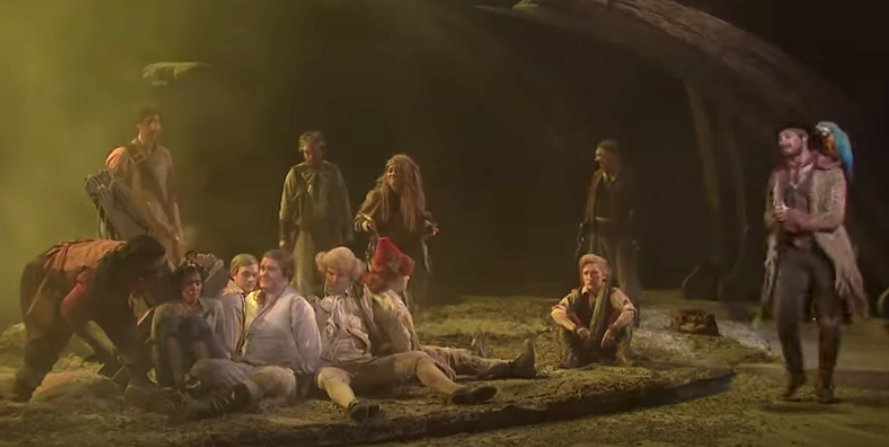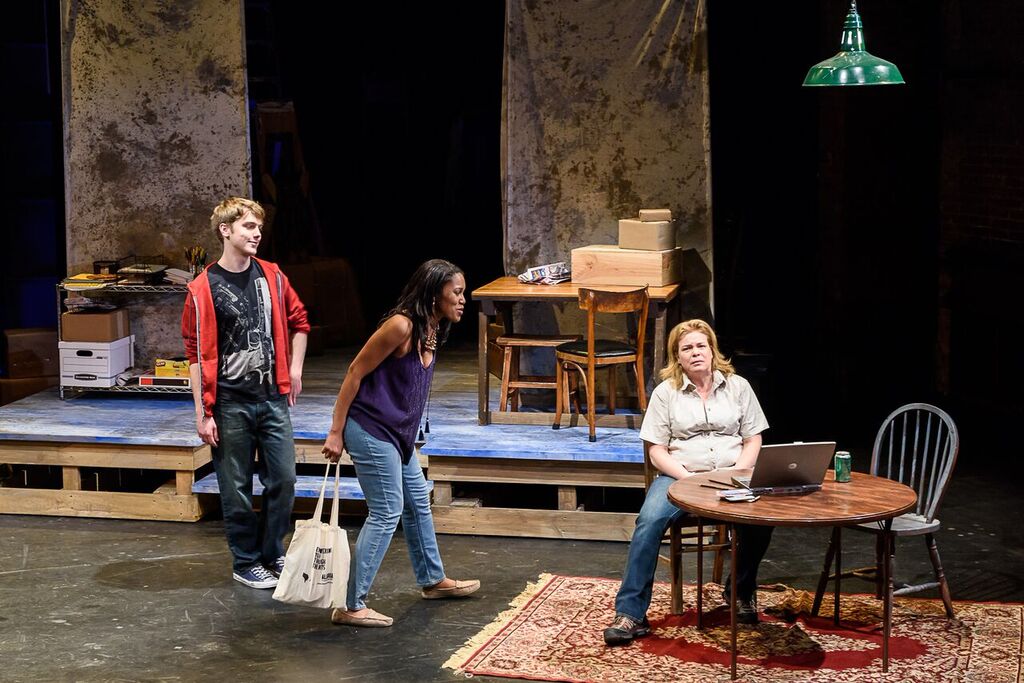by Carol Rocamora
When Lincoln Center’s leadership decided to remount Bartlett Sher’s production of Oslo in the cavernous Vivian Beaumont Theatre after it opened last summer in the intimate Mitzi Newhouse, they took a huge risk. But now, J. T. Rogers’ riveting historical drama feels right where it belongs – on a world stage.
Risk-taking is what this thrilling story is all about. Oslo dramatizes a secret that the playwright himself uncovered – about two brave Norwegian diplomats Terje Rod-Larsen and Mona Juul. In 1993, the couple created a clandestine back-channel, facilitating secret conversations between Israelis and Palestinians that violated their laws, protocols and diplomatic precedents, putting everyone involved at extreme risk. The result was the Oslo Accord – a momentous agreement between two mortal enemies, their nations drenched in each other’s blood. Till that day, such a détente – involving explosive issues like recognizing the PLO and the legitimacy of the state of Israel – seemed utterly impossible.
The mesmerizing plot involves 21 characters, multiple locales, and a complex political context – packed into three intense hours of stage time. As such, it felt focused and manageable in the intimate 288-seat Mitzi Newhouse space. But now, in the majestic 1055-seat Beaumont, the play has expanded in breadth, scope, and impact – gaining the stature that the story justly deserves.
The cast has expanded from 12 to 21. Sher’s masterful staging employs every inch of the empty space, as he moves his ensemble gracefully through the rooms of the 800-year old Norwegian castle where the secret meetings take place, and beyond to other locales. Doors revolve, tables rise from beneath the stage floor, chairs are placed and replaced, meals appear and disappear, telephones are supplied and removed – all is choreographed seamlessly and gracefully under Sher’s expert direction. During the swift scene changes, projections (designed by 59 Productions) fill the expansive upstage wall (set design by Michael Yeargan), dramatizing the violent bloody conflict that continued to rage between these two nations. Below, on-stage negotiators battle with words as fiercely and feverishly as the fighters on the screen. These dramatic projections, panoramic in scope and overwhelming in impact, further enhance the enormity of what’s at stake.
Jefferson Mays shines as the idealistic Rod-Larsen, who is testing his academic theory of “gradualism” in negotiation. “If you succeed, it will change the world,” he declares. As his wife, Mona Juul, Jennifer Ehle gives the play its moral center of decency and compassion. “Two men in a room exchange handshakes, and history begins to change,” she says, articulating their vision. On the Palestinian side, Anthony Azizi plays the soulful Ahmed Qurie, while Michael Aronov, as the flashy Israeli negotiator Uri Savir, gives a charismatic performance and welcome comedic relief.
Playwright Rogers’s grasp of the scope of these events and the depth of his research are astonishing. His suspenseful plot takes us through so many torturous twists and turns that we don’t know till the final moment what the outcome will be. “Our peoples live in the past. Let us find a way to live in the present, together,” entreats one side. “In this room, we will forge a peace or there will be no peace,” insists another. “Stay in the room and find a way forward,” exclaims Juul at one perilous point.
There are memorable, moving moments –such as when two adversaries (one Palestinian and one Israeli) discover that they each have a daughter named Maya. There’s the penultimate moment when Shimon Peres (Daniel Oreskes) seals the final negotiation with Yassir Arafat on the telephone. From the desk console, you hear a muffled sound. “What is it?” asks someone. It is the sound of Palestinians weeping on the other end of the line….
Rogers offers a tragic coda to the story, forecasting the violent conflict that continues after 1993 despite the agreement (Rabin’s assassination, the second Intifada, the Gaza Wars, etc.). “I’m struggling to know if what we did and how we did it was right,” says Juul, ruefully. What’s “right” is the passionate commitment that Rogers has made to telling this story, showing that personal acts of heroism can indeed make a difference – if only two enemies would sit down in a room together and talk.
Photos: T. Charles Erickson
J.T. Rogers – Oslo, directed by Bartlett Sher, at Lincoln Center’s Vivian Beaumont Theatre.


